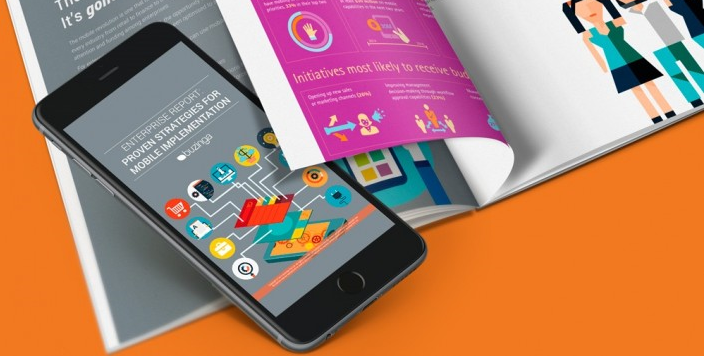10 Tips For How To Pick The Right App Developer For Your Business
The growing demand of mobile access makes a mobile application an important part of any business’ marketing strategy.
Mobile is known for being an easy method for attracting new customers and keeping existing ones.
It also has the potential of earning significant revenue through a number of app monetisation methods.
More and more, businesses are jumping onto the app development wagon.
Here’s where the trouble happens…
After careful consideration for the type of application needed, the next step is finding a reliable and quality oriented developer to build the application.
Just like a business partner, the right application developer is priceless for any business.
Here are our 10 tips for how to pick the right app developer:
1. Don’t Select The First App Developer You Meet
App development can be really exciting.
And the first app developer you speak to will most likely know more than you about the subject. But never the less, you need to be meticulous in your research to find someone suitable.
Discuss your expectations and refine them with the developer’s knowledge and experience. Every developer you speak to will give you insight into how this game works.
2. Sound Technical Knowledge
It’s vital for the app developer to have deep knowledge and understanding of the operating system (Android, iOS, Blackberry, Windows, etc.) on which you plan to develop your application.
If you need an application to be developed on the Apple operating system (iOS) it’s important that the developer has proper knowledge of the XCode development suite and fully understands its limitations.
They should also have a clear understanding of the Apple Developer Guidelines. This will ensure you your app doesn’t get rejected.
I can speak from personal experience when I say: “There’s nothing good about getting rejected by the App Store”. Do your research up front or make sure your developer is competent.
On the other hand, if it’s to be built on the Android operating system (HTC, Samsung, etc.), core JAVA programming is must-have knowledge.
Review their website or portfolio comprehensively. If they’ve developed Android apps they should be accessible on the App Store.
It’s a good idea to download their previous applications from the app store and determine whether you like what you see.
Look for: Clear understanding of good design principals and make sure the application doesn’t have any major bugs.
3. Versatility
Consider hiring a developer who is an expert in all of the common application platforms like Apple and Android but also web practices like PHP and database CSS, etc.
Moreover, your application would be used on different gadgets, so you need to ensure that they are able to tailor the application to suit all screen sizes and types.
Look for: Previous web applications and website development.
As your application system grows it may need integration with other web-based systems.
Ensure they have built large systems across other platforms as well. Once again, a portfolio should reveal all this.
4. Budget
App development isn’t cheap.
See also: How Much Does Business App Development Cost? We Break It Down.
At the same time that you don’t want to get yourself blindly ripped off, you also don’t want to go with the cheapest developer.
Everyone has a budget, but I’ve seen plenty of times when that budget has been totally wasted because there developer was incompetent. As a result, nothing.
Application development is a big investment. And just like any other big investment, like landscaping, marketing, web design, painting…etc. you need to pick someone who’s product quality matches the value of your brand.
Also, it’s better to have one development team working across your whole project, including programming, UI/UX design, testing, etc.
5. Keep Track of Progress
During the early stages of development it’s a good idea to keep an eye on the mobile developer.
Understand the proper process for developing mobile apps.
For instance, if your developer suggests to start coding right away then you’re gonna find yourself in a heap down the line. A planned approach is always the best.
Your developer should plan the project ahead of time with a detailed project scope document and milestones for deliverables.
This process alone takes between 3-5 weeks.
Any less than that is a bit of a worry.
6. Power of collaboration
Provide support to the application developer from the beginning of the development stage to the final testing stage.
It is important to work with someone who you can build a long–term relationship with as it can be hard to switch from one developer to another.
7. Post Deployment Support
A good sign of a reliable developer is the ability to provide on-going post deployment technical support.
They must be able to fix all bugs that come up when the application reaches the end user. I
t’s a good idea to hire someone who emphasises end user experience.
Make sure to ask your potential app developer about their support system after the app goes to the App Store, how they handle Facebook updates (or other 3rd party software).
Also, how they handle bug fixes after launch.
This is important as some developers will offer you 1 month, others will offer you 3 months, but some won’t offer you anything at all!
8. IP Ownership
Ask your developer this question (and make sure it’s stated clearly in the development agreement):
“Who owns the IP when the app is launched to the App Store?”
Surprisingly there are a tonne of app developers who will claim the IP of projects they’ve worked on, and then call it common practice.
I still don’t understand how this can make sense to anyone. But just be careful.
9. Someone You Like & Respect
Follow your gut a little bit.
If you like the person you get to speak to, and if what they say makes sense then perhaps they’re good. I
n my experience it’s a lot easier to make something great happen with someone you like, as opposed to someone you don’t get along with.
Be mindful of that.
10. Check References
As far as you know the person you speak to on the phone might be speaking to you from his single bed in a shoebox bedroom in his parents apartment…
I recommend that no matter who you work with that you check at least two references. One of each of the following type:
Customer from a previous project: To find out how satisfied the customer was with the final product.
Customer from a current project: To get a feel for how busy the app developer is right now and if they’re meeting timelines, etc.
This process is a pain in the butt for an app developer (I can openly admit this), but at the same time you need to protect yourself and this is one of the most effective ways to do so.
And any app developer with a solid track record should have no issues providing references to clients. We do it all the time.
Wrapping up
I can’t stress the importance of conducting thorough research before hiring an application developer.
This shouldn’t be ignored. Consider speaking to business contacts, visit online forums and search other industry specific places before making your selection.
Look out for the following:
- A solid track record of happy customers and a nice portfolio. Applications should be ranging from simple to complex and include multiple platforms.
- Establishing the right kinds of partnerships across the industries is how real success is created. Make sure that the app developer you choose is someone you can see eye to eye with, and that they bring deep technical understanding to the table.
- Know what you’re getting. This idea, the code and the designs should be yours to walk away with, should you decide to work with another app developer.
- Talk to a lot of app development companies/providers before settling. Find out what’s available to you before signing on the dotted line.
Good luck and may the force be with you…
Want to learn how the pros are achieving mobile ROI within 1 year? Download our enterprise mobility report below…
Latest posts by Logan Merrick (see all)
- Ep 18: Collective Campus’ CEO on Intrapreneurship and Corporate Innovation - December 20, 2016
- 50 User Engagement Strategies For Planning Memorable Mobile Experiences - December 19, 2016
- Latest Data: App Monetisation Trends And Drivers 2015-2020 - November 25, 2016



